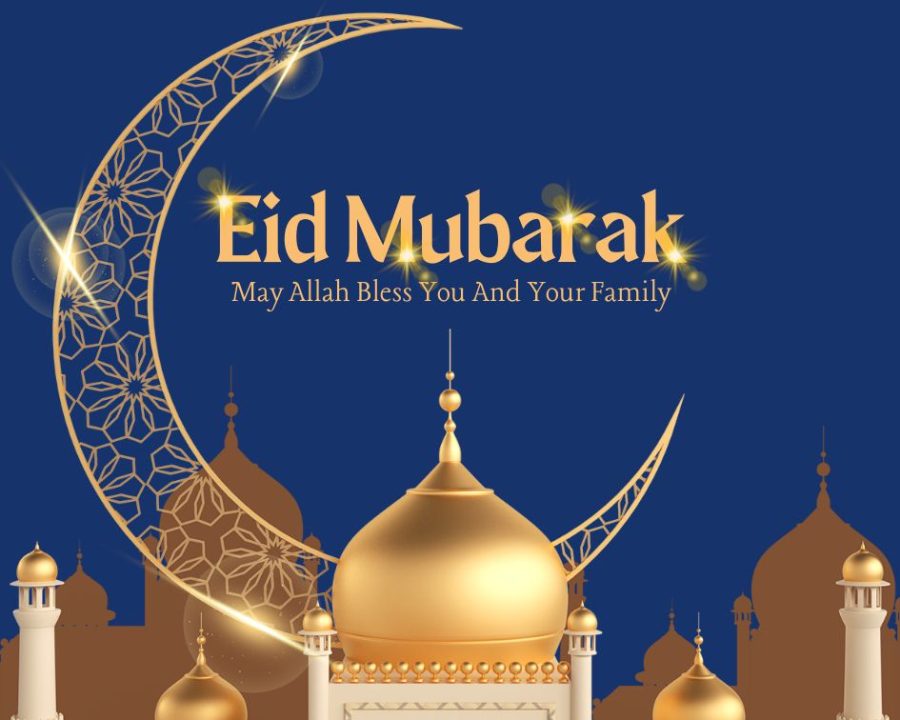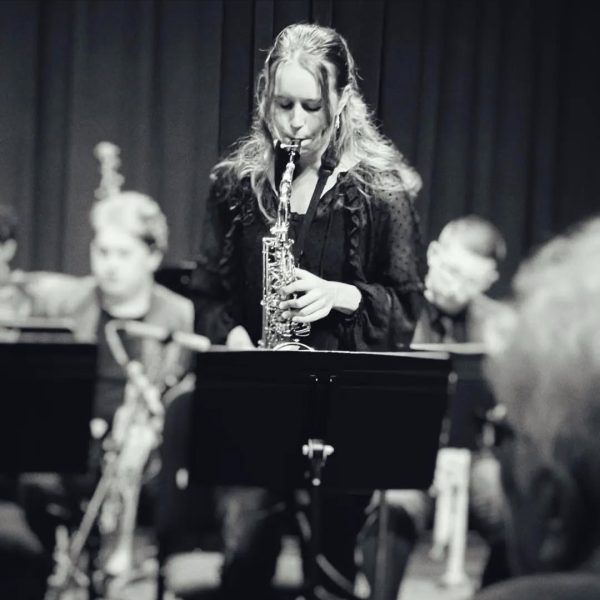Gratifying month comes to a close
Celebrating the end of Ramadan
The end of the ninth month of the Islamic lunar calendar passes by, and the period where the holy Quran came down to mankind, Ramadan, comes to an end; 1.9 billion Muslims from around the world celebrated Eid-ul-Fitr as an ending to the rigorous but gratifying month from May 1st to May 2nd.
“With Eid coming, I’m excited to be able to celebrate with my family the great milestone we achieved together!” junior Humza Hussain said. “Eid wouldn’t be the same without them because we all went through the same experience.”
Often used as a greeting on the yearly event, “Eid Mubarak” means “Blessed feast.” The literal translation of Eid-ul-Fitr is “festival of breaking the fast,” meaning one fasts on any day of the year except this holiday and the other Eid (Eid-ul-Adha “Festival of the Sacrifice”). It is a period which spans one to three days in regards to celebrating all the hard work Muslims put in during Ramadan. On the joyous occasion, Muslims globally attend the Mosque and pray the morning prayer, wear their prettiest clothes, eat wonderful food, have plenty of sweets and spend time with family. Typically, people of younger ages get gifts from their parents or other adults as a reward.
Since Muslims are not only restricted to one specific part of the world, different cultures and ethnicities have their own halal (permissible) ways to commemorate the special event.
“I am looking forward to eating foods like biryani, kheer (pudding) and Halwa Puri (typical Punjabi-style sweet-fried round bread paired with chick-pea gravy),” Khan said. “I rarely get to eat these mouth-watering foods, and since they might be the first things I am able to eat during the daytime, it just makes Eid all the more exciting.”
Eid-ul-Fitr serves as a time for Muslims to show gratitude and reflect on the past month; honoring the time where one of the pillars of Islam, Sawm meaning “to fast,” was compulsory, as well as zakat “charity to those less fortunate.” Although it is no longer required to fast from Eid-ul Fitr and the following months after Ramadan, the actions taken to make a positive impact on one’s environment and always keeping God in mind continues. Actions of praying the five mandatory prayers everyday, constantly being a considerate individual, having strong faith and being persistent on widening one’s knowledge of Isam is ongoing.
“Oftentimes people only associate Ramadan with empathizing with those less fortunate. While that is true, it goes beyond that. It’s a period of reflection that I realized more and more as each day went by,” sophomore Hamzah Hussain said. “It’s about continuing your daily routine but in moderation and practicing patience.”
Your donation will support the student journalists of Eisenhower High School. Your contribution will allow us to purchase equipment and cover our annual website hosting costs.






